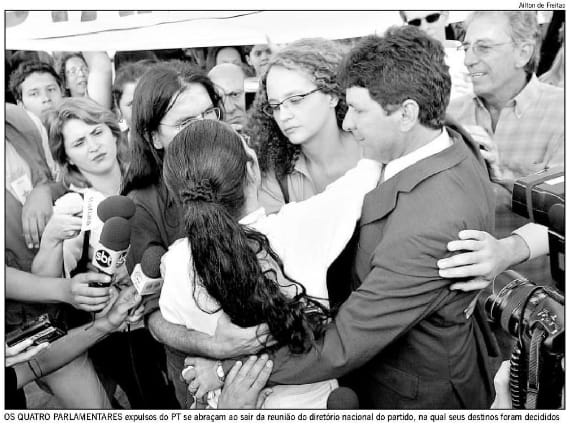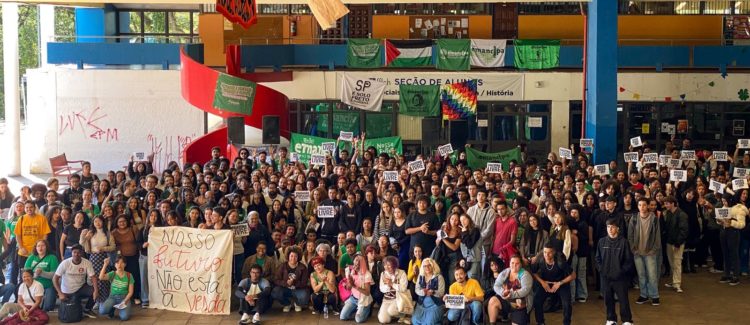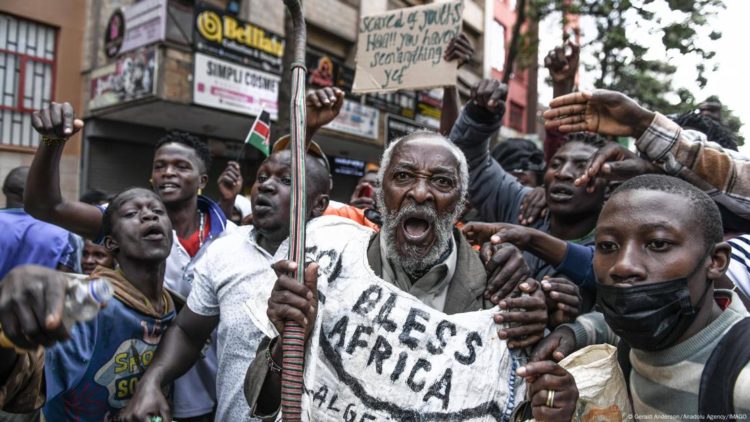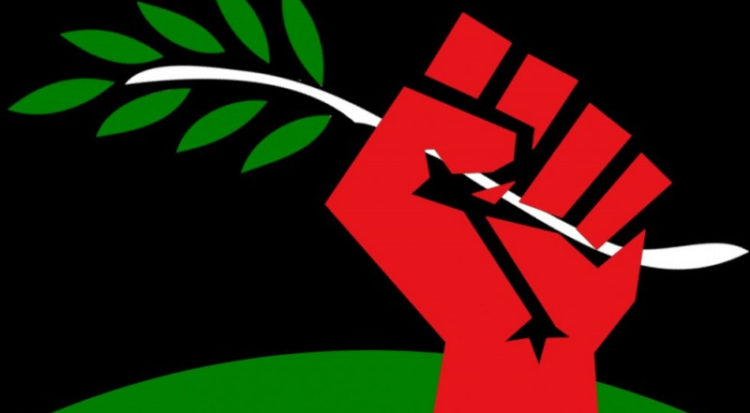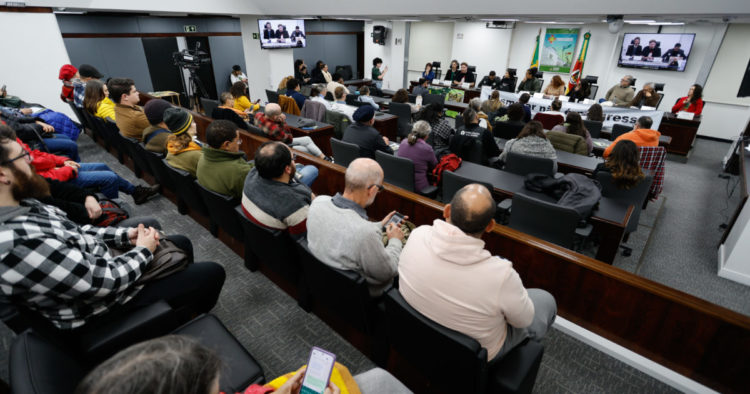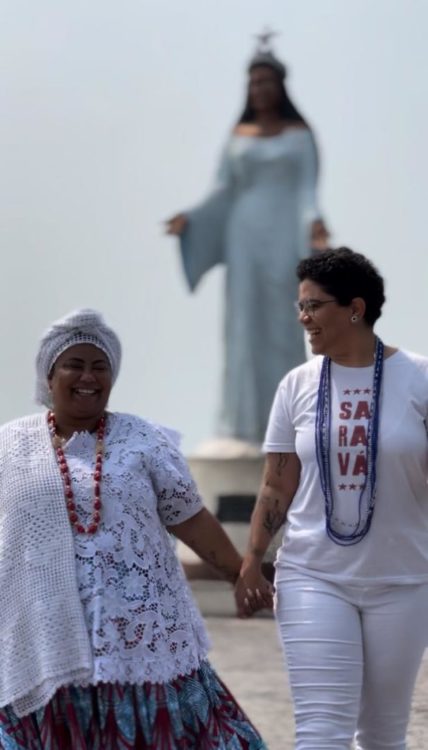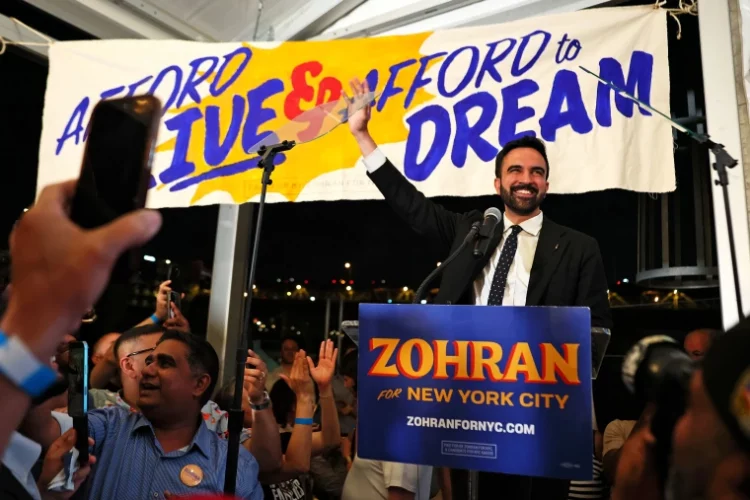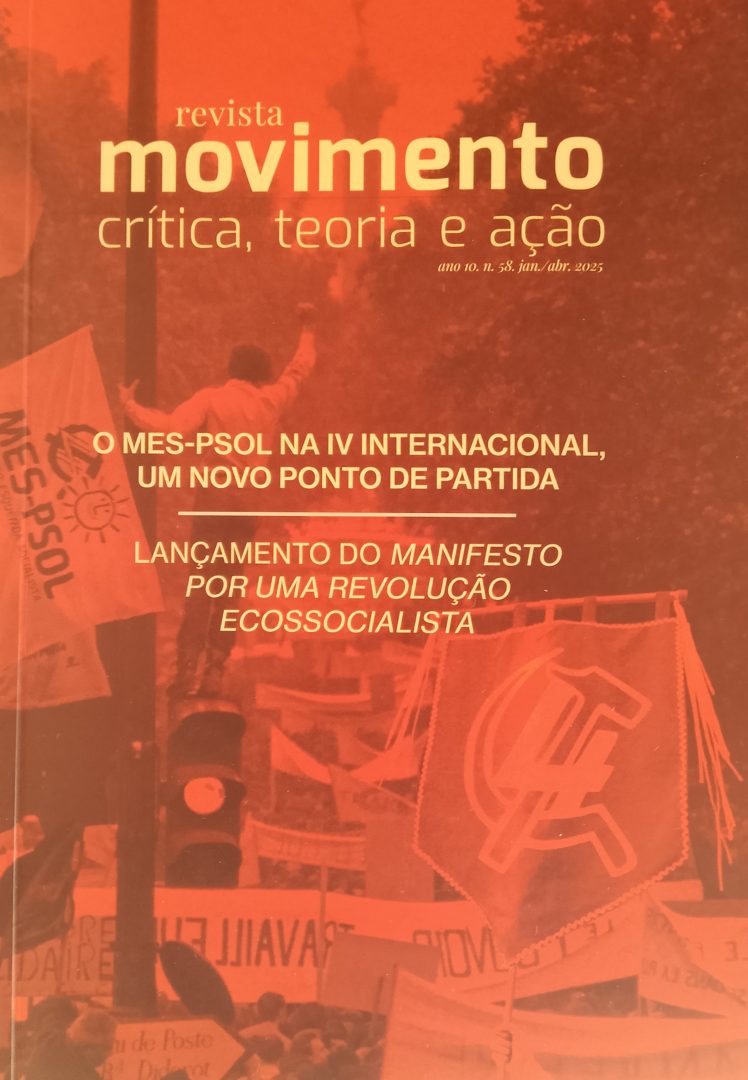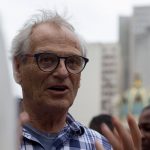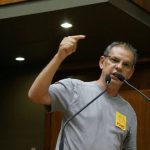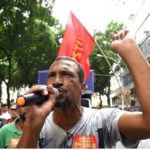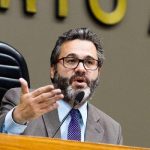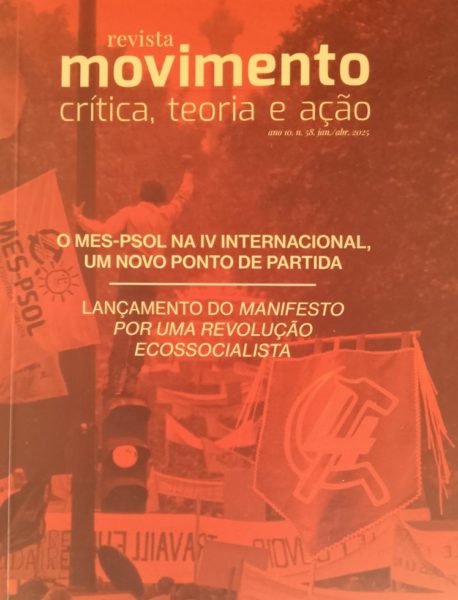20 years of “The Day of the Radicals”
A reflection on the expulsion of PT radicals, a process that would give rise to PSOL
20 years ago the process of expulsion of radicals took place within PT (Partido dos Trabalhadores/ Labour Party). At the time, the newspaper O Globo published a series of reports called “The Day of the Radicals”, which I will review in this article. The choice to remember the process of expulsion of Heloísa Helena, Luciana Genro, João Fontes and Babá from the ranks of the PT for opposing the Social Security Reform of the first Lula government and remaining in defense of the mobilization of public servants, is not causing a mere agitation of a historical episode, despite this being one of the most striking moments that the Brazilian left has experienced in the 21st century. The central objective, when recalling the process of expulsion of the Radicals from the PT, is justified in the context of a political and programmatic struggle that is still ongoing within the PSOL.
“D-DAY OF THE RADICALS: ‘It’s a big drama. If the PT maintains this course, it will be a disaster’, says Plínio de Arruda Sampaio” (O Globo, 12/14/2003)
In other words, the controversies of the present time, as we will see throughout the text with interspersed clippings of reports from the main Brazilian press newspaper, are not dissociated from the historical content of the expulsion of the Radical parliamentarians. Although Brazil and the world are in a different situation than in the last 20 years, an objective fact that is not denied by the majority of the left and by all the currents that make up the PSOL. However, by highlighting the difficulties and challenges of the defensive situation, an entire wing of the PSOL is launching itself into changes, not only tactical, but, above all, strategic in the nature of the party. This was the most sensitive aspect of the last PSOL congress.
“A party divided into three camps”
The PT National Directory has 81 members, in addition to the party president, José Genoino, the leader in the Senate, Tião Viana, and the leader in the Chamber, Nelson Pellegrino. Of the 84 votes, 43 (simple majority plus one) are needed for the expulsion of the radicals to be completed. The estimate is that 50 members will vote for the radicals to leave. PT leaders align themselves in three fields: majority, center and left. Each PT field has several currents, which unite into slates in the votes” (O Globo, 12/12/2003)
As has already been widely debated, the 8th PSOL National Congress was marked by a change in quality in the internal relationship of forces, where, for the first time, a reformist majority was consolidated, adhering to the government and using bureaucratic methods (such as the overthrow of the election of delegates via plenary sessions and the change in proportionality criteria for party leadership), supported mainly by mass memberships controlled by local governments such as Belém and Macapá. In such a way, the PSOL Popular bloc (Primeira Socialista and Revolução Solidária) obtained approximately 55%, also counting on the support of PSOL Semente (Resistência, Subverta e Insurgência) which gathered 12%. The two blocks (PSOL Popular and Semente) form the PSOL de Todas as Lutas (PTL) camp, which has consolidated itself as the majority camp with 67%, that is, 2/3 of the PSOL leadership. The psolist left, defending PSOL’s independence from class conciliation governments, received approximately 33%.
D-DAY OF RADICALS:
“PT displays strength and expels dissidents
By 55 votes to 27, the party excludes senator Heloísa Helena and deputies who voted against the reforms
In a historic meeting, the PT’s national directory yesterday expelled, by 55 votes to 27, senator Heloísa Helena (AL) and deputies João Batista Babá (PA) and Luciana Genro (RS), who voted against the reform projects that the government had sent to Congress. Deputy João Fontes (SE) was also expelled, summarily, for having distributed to journalists an old tape in which President Lula attacked his now ally José Sarney (PMDB-AP). The Majority, which brings together the party’s moderates, also showed its strength by approving all of its thesis, nullifying those presented by the party’s left-wing currents. ‘Not supporting the government resolutely means betraying the democratic determination that the PT received at the polls’, says the text approved at the meeting.” (O Globo, 12/14/2003)
The main controversy is the change in the character of the party, which adopted as a strategy during the period the deepening of support for Lula’s social-liberal government and the dispute for mayors, having as its axis the mayor of São Paulo, based on the Boulos candidacy. But, not only that, Valério Arcary, leader of the Resistance, after the 8th PSOL Congress, published an article that in essence presents Boulos as a kind of successor to Lula as leader of the Brazilian left, based on the dispute for executive positions.
VERISSIMO
“It won’t work well”
I don’t know, as I write, what fate the PT will give its rebels. The reasons for expelling them are perfectly rational. Party discipline, unity for final purposes even at the cost of some temporary resignation and other pragmatic long-term benefits. But it’s going to be bad, it’s going to be bad. On a symbolic level – one that has nothing to do with harsh political decisions, but tends to prevail over reality and even overthrow empires, or at least the empathy of those who disdain it – what will remain is that one day the PT banned its more combative and coherent”. (O Globo, 12/14/2003)
It is interesting to note that Valter Pomar, leader of Articulação de Esquerda (internal current of the PT), who recently wrote a text polemicizing from the left against Valério Arcary, in 2004 wrote a text entitled “The left at the crossroads”, published in the newspaper Brasil de Fato. He said that the PSOL was not a viable alternative, because it was not born under the heat of a workers’ rise like the PT and, according to Pomar, it overestimated the parliamentary weight and a candidacy for the presidency of the republic. However, Roberto Robaina, in the article “The crossroads of Pomar: a clear shot in the chest or head”, published in Correio da Cidadania (newspaper directed by Plínio de Arruda Sampaio Jr), responded to the attacks on PSOL:
“The determining issue is that PSOL was born responding to a need of the working class: to have a political representation of their interests that is independent and anti-capitalist. Furthermore, it was born from the PT’s experience, after 22 years. We have a chance, therefore, to learn from PT’s mistakes. That is why, for example, PSOL does not emerge with the strategy of electing the President of the Republic, but rather the defense of mass mobilization to defeat the capitalist order. This is not just anything. After all, in the PT, even the left, at least the one led by Pomar, assumed the presidential dispute as the party’s most important strategy.” (Movimento Magazine, July 2004).
It seems to me, regrettably, that Arcary did not learn enough from the PT’s mistakes. However, Robaina was right in his response to Pomar. It was no surprise that Roberto Robaina, with the book “A vision from the left”, published in January 2003, laid the political and theoretical foundations for the founding of the PSOL, since among speeches and publications by various leaders and currents, this was the only book in loco that “supported the positions that provided the foundations for the new party project”.
D-DAY OF RADICALS:
“HAND TO BODY
LUCIANA GENRO
‘There is no turning back for PT’
Soraya Aggege
O GLOBO: How is the PT, after the expulsions?
LUCIANA GENRO: By expelling us, the Workers’ Party has just consolidated a profound change in its character. The PT disintegrates, degenerates into the path it is taking. It becomes a defender of neoliberalism. These expulsions are a symbol that there is no going back for the PT.
What is your assessment of this first year of the PT in power?
LUCIANA: The PT government continued the economic policy of President Fernando Henrique Cardoso’s government, with zero GDP growth, with a drop in workers’ pay, who are eating even less. We paid R$120 billion in interest on an external debt that still grew. This government was the reproduction of what we have always fought against. For a year, the PT strictly followed the International Monetary Fund’s recipe and gave up its chance to transform the country.
What is your political direction, starting this Sunday? LUCIANA: Let’s organize the left that has not surrendered around a new, democratic and pluralist party. It will be a political tool to boost the people’s struggles and a reference for all those who were disappointed with the PT. It will be a long process and in the meantime, I will oppose this model as a federal deputy without a party”.
Therefore, the demand for this historical balance is not an empty demarcation. Furthermore, the PTL presents itself as a political field within the PSOL that “got it right” in the last eight years by allying itself with the PT, in the heat of the parliamentary coup that overthrew Dilma and in the face of the rise of the extreme right that culminated in the government Bolsonaro. This agitation is more of a smokescreen than content, since in practice the entire party (with the exception of the Resistance, which was in the PSTU and defended “Fora Todos”/ “Out with everyone”) took a stand against the parliamentary coup (MES, for example, defended general elections, a policy that could be used in the direction of Lula’s protagonism in the line of the institutional crisis and PTism) and was thrown into the fight against the neo-fascist extreme right, forming unity of action with the popular front parties in the streets, in parliament and in the elections.
D-DAY OF RADICALS:
“Two currents announced that they are leaving the PT
Parliamentarians distributed a manifesto on the formation of the new party, which does not yet have a name or date for formation. To create a party you need one million signatures. For now, they only have about seven thousand.
It is not an immediate process, it cannot be done overnight. We want to build collectively with comrades who are leaving the party or may leave it. Until then we will be left without a party – said Luciana
The currents of Luciana – Movimento Esquerda Socialista (MES) and Babá – Corrente Socialista dos Trabalhadores (CST) – announced, at the end of the meeting, that they were also leaving the PT towards the future new party. One of the members of the Rio Grande do Sul directory, Roberto Robaina, linked to Luciana, asked for immediate removal.
The deputies say they do not intend to boycott the Lula government.
-We don’t want ‘Lula out’. The government will only change if there is mass mobilization to boost it, or even run over it, if it doesn’t decide which side it is on. Because, at the moment, they prefer to side with the bankers instead of the workers – said Babá”. (O Globo, 12/14/2003)
.
To support this orientation, there is the scarecrow of the return of Bolsonarism in 2026, the necessary fight against the neo-fascist extreme right and the illusion of the “reconstruction” of Brazil after the pandemic and four years of Bolsonaro via a government of class collaboration. To achieve this, according to PTL, the Lula government needs to work out. In this way, the policy of composition of the allied base in parliament and positions in the government, at the first and second levels, is justified to the majority of the PSOL. They talk about it, but they are indifferent to the reactive role of PT in the Fora Bolsonaro mobilizations, the strength that the radical left dedicated to promoting actions in the streets and in parliament to overthrow Bolsonaro and the decisive role of Sâmia Bomfim, elected the best deputy in Brazil , in the MST CPI (Parliamentary Inquisitive Commission).
D-DAY OF RADICALS:
“The tendency is to wait for the end of 2004
One of the oldest representatives of the PT left, with a position in the leadership for 20 years, deputy Ivan Valente (SP), from Força Socialista, thinks that the situation has reached its limit, but will continue for at least another year:
-The result of the national directory meeting will make coexistence unfeasible. But in the minds of activists it will still be a year of hope. I just don’t want to analyze the consequences for the left. It’s very hard.
Dragging time to try to convince the government to change course is the strategy of Socialist Democracy (DS), a tendency of Heloísa Helena and the Minister of Agrarian Development, Miguel Rossetto. Joaquim Soreano, leader of the DS and PT, will appeal the decision of the national directory and try to promote an anticipation of the national meeting, scheduled for 2005. The meeting is the superior body to the directory.
-The militants need to be called to give their opinion on what is happening- said Soreano”. (O Globo, 12/14/2003)
I will not discuss this point, especially because there are publications in Revista Movimento which give a scathing response to the PTL’s united agitation. However, there is an element that needs to be explored, which is the contextualization of the balance and perspective surrounding the narrative of the PTL’s “achievements” and, let’s say, a distancing, not to say erasure, of the PSOL’s foundational bases. It is no surprise that the government model designed by Boulos is that of Lula, which was used for the unpopular experience of Edmilson Rodrigues in Belém, who on the cover of the Primavera Socialista website says: “Reconstructing Brazil with Lula and the PSOL” and that Valério Arcary published an article entitled “The Boulos strategy”.
“Chico de Oliveira says that PT is a part of the political center with the PSDB
SÃO PAULO. For sociologist Francisco de Oliveira, the PT became another half of the PSDB and began to form the political center. He says that Brazil was divided between the “angry and retrograde right”, represented by parties like the PFL, and the large center, made up of PT and PSDB. The space on the left, for Oliveira, is empty.
– At least for some time, Lula and his government managed to bury the left in the country – he says.
In the sociologist’s assessment, Lula buried a history greater than that of the PT, of 40 years of the left in Brazil that began with the end of the old PCB, in the 60s, and which emerged with the groups that today form the flags of the left of the PT: the student movement, feminism, trade unionism, ecology.
-It may take a while, as it was a hard blow, but the left will be reborn in Brazil -says Chico de Oliveira”. (O Globo, 12/13/2003)
In other words, the orientation does not correspond, not only in tactics, but, above all, in the strategy and party conception planted by the Radicals twenty years ago. Instead of class independence and mass mobilization as a method, as stated by Robaina in the controversy with Pomar, the PSOL now has a majority that affirms the need for composition with class conciliation governments and that the strategy is to win municipal governments, having the PT as a privileged ally.
This position, contrary to the party’s founding framework, cannot be justified by the danger of a fascist coup and/or the extreme right winning the 2026 elections. The January 8th coup attempt was defeated, Bolsonaro is ineligible, the PT has allied with Arthur Lira in parliament and the government incorporated into the ministries not only representatives of the liberal right and “centrão” (center) parties, but also former bolsonaristas such as André Fufuca. Of course, the risk of the far right returning to power has not ended. But, what is the role of an anti-capitalist party as a member of this government of class collaboration, with such a composition of bourgeois factions, with a voted fiscal framework and with agendas such as the privatization of prisons, under discussion?
Therefore, the PTL needs the narrative of its “successes” to distance itself from the orientation and founding program of the PSOL, which is clearly anti-capitalist, internationalist, of class independence and a defender of mass mobilization as a method of structural transformation. The defense of this program, combined with the extraordinary example of the Radicals’ struggle with Heloísa Helena as the main public expression, was able to bring together the necessary forces for the birth of the PSOL, not only with the Radicals and two of their currents, but adding up to that historical moment, intellectuals such as Chico de Oliveira, Paulo Arantes, Ricardo Antunes, Roberto Romano, Leandro Konder, Carlos Nelson Coutinho, in addition to the always combative and former federal deputy Milton Temer, from regional currents within the PT ranks such as SR and MTP, from CSOL (PSTU split) and MTL, activists from Rio de Janeiro and Paraná who broke with the DS, among hundreds of honest activists, union leaders, especially from the public service.
After Radical Day, a lot happened, PSOL was born, grew, reached its majority and in June 2024 it will celebrate twenty years of existence. We will continue in the battle so that the party is not completely mischaracterized and is able to return to its original course.
